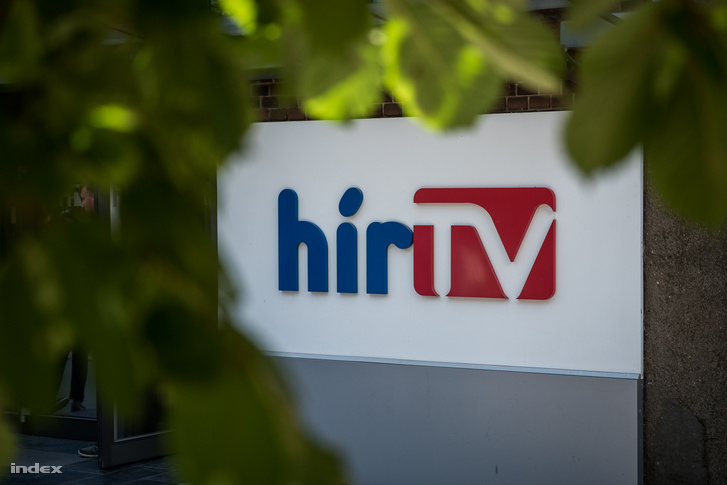- In English
- hungary
- media
- lőrinc mészáros
- mediaworks
- origo
- hirtv
- 888
- figyelo
- fidesz
- viktor orbán
- state advertisement
Sudden cataclysm in Hungarian media: Almost all pro-government outlets in one hand
További In English cikkek
The significant part of the Hungarian media, more than 200 titles including most of the flagships of Fidesz's media empire are now the property of the Central European Press and Media Foundation. The unification of the media portfolios of various oligarchs linked to Fidesz happened suddenly, with media owners voluntarily offering their shares to the foundation - for free.
Such a huge acquisition is likely to draw attention to itself, as it could arguably be worrying in terms of competition law. The authority that could have a say in the matter is the National Competition Authority, which, if it considers necessary, can ask for the preliminary decision of Hungary's Media Council, and their preliminary decision obliges the Competition Authority. It is important to note that all four members of the Media Council were nominated by Fidesz.
At the helm of the new holding is Gábor Liszkay, a media expert who participated in building press friendly to Fidesz even during the party's pre-2010 years in opposition, working closely together with Lajos Simicska, the former financial mastermind behind Fidesz. He had led the now-defunct right-wing daily newspaper Magyar Nemzet for 15 years.

Liszkay has undergone his baptism by fire in 2015, when he quit Magyar Nemzet and stayed by the side of Viktor Orbán during Simicska's rather spectacular falling-out with the Prime Minister in early February 2015, commonly referred to as G-day, named after the initial of the curse word Simicska repeatedly used to describe Orbán in the numerous rage-fueled interviews he gave during his tirade. Recently Liszkay was the head of the Mészáros-owned Mediaworks and participated in the takeover and realignment of HírTV.
Today's events could possibly be explained by what Index reported earlier - the fragmented structure of the pro-government media was a significant headache for Viktor Orbán, and rationalisation of the portfolio was necessary, as most of these outlets were financed by state advertisement. Media companies linked to Fidesz were the recipients of as much as 66% of state spending on advertisement according to the latest (June 2018) data from the investigative news site, Átlátszó. And by the way, that does not include the 14% share of the public media.
But what happened exactly?
Lőrinc Mészáros's media holding company Mediaworks first acquired the publisher of pro-government Magyar Idők, similarly aligned radio Karc FM, the publishers of the six remaining county-wide newspapers not yet in his property, including Lapcom that also publishes the print and online iterations of Bors, one of the top tabloids of Hungary, and an agricultural publishing company with the weekly newspaper Szabad Föld that also has significant circulation.
By noon today, 18 out of the top 20 daily newspapers of Hungary were owned by Lőrinc Mészáros, childhood friend of Viktor Orbán, former mayor of Felcsút (the Prime Minister's hometown that is close to his heart to this day) who used to be a pipe-fitter, but soon became the fifth richest person in Hungary after Fidesz's rise to power in 2010.

After all that, Mediaworks merged into Talentis Zrt and so did Printimus, the sales house responsible for selling the ad spaces of Lapcom and Mediaworks publications.
Lőrinc Mészáros then went on to donate 100% of Talentis Zrt's shares to the Central European Press and Media Foundation. According to the company's press release:
The aim of the donor is to ensure the long-term protection of national values and traditions, to further strengthen the opinion-shaping role of the conservative written and electronic media, and to support informing local communities as extensively as possible.
Later in the afternoon, the foundation announced agreements about the donation of ten more media companies. Amongst others, the media outlets acquired this way include:
- Figyelő, formerly Mária Schmidt's weekly paper notorious for its list of "hired guns of George Soros" that included academics, journalists, employees of NGOs, political activists, and even some people who were long since dead by the publication of the list.
- 888.hu, the right-wing carbon-copy of gonzo-styled independent 444.hu is owned by Árpád Habony, the unofficial advisor and confidante of the Prime Minister. The site recently made headlines when it urged university students to report their professors to them in case they expressed too much left-wing political opinions.
- Lokál and its mutations. The publishing company of the newspaper mixing tabloid with pro-government political reports used to be a business interest of Árpád Habony as well before today. The circulation of the daily version of the paper distributed for free at public transportation hubs is 150,000, while 1,160,000 copies of Lokál Extra, the weekly iteration, are delivered to doors all over Budapest and in 24 other towns in Hungary, as Lokál's website boasts.
- HírTv, 24-hour news channel formerly owned by Lajos Simicska, who turned the previously pro-government channel against Fidesz after G-day, but in 2018, after the third consecutive election victory of Fidesz, he suddenly retreated from the business world entirely and sold the television station as well (and closed his daily Magyar Nemzet). The TV was realigned to its original pro-Fidesz stance over the course of a day, with new leader Liszkay immediately firing the management and the channel's significant talking heads from the 2015-2018 era, filling the airtime left empty by the chaotic takeover with speeches by Viktor Orbán.

Since then, three more companies gave notice of their intent to join the foundation, including:
- Echo TV, a previously marginal 24-hour news channel that was purchased by Lőrinc Mészáros to fill the void left behind by HírTV's turn towards the opposition after G-day.
- Origo.hu, which is one of Hungary's most-read news websites. Origo was owned by Magyar Telekom, subsidiary of Deutsche Telekom until its 2015 sale to a company of the son of György Matolcsy, head of the Hungarian National Bank. Last Saturday, the New York Times published a lengthy analysis of how that deal came to be, including the serious government meddling in the site's editorial freedom that preceded the acquisition.
This article is based on the original report published by Index.

Support the independent media!
The English section of Index is financed from donations.


